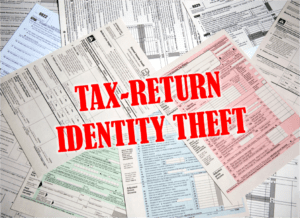 Was a fraudulent return filed under your social security number? The IRS finally announced on November 3rd, 2015, a plan to allow you to get more information about what was included on that return. This sounds great on the surface, but you may not find what you seek, given that much of the information you want will be redacted from what you receive.
Was a fraudulent return filed under your social security number? The IRS finally announced on November 3rd, 2015, a plan to allow you to get more information about what was included on that return. This sounds great on the surface, but you may not find what you seek, given that much of the information you want will be redacted from what you receive.
To get information on the fraudulent return, you’ll need to send a letter to the IRS including the information below. They say they will acknowledge the request within 30 days and provide the information within 90 days.
Per the IRS instructions, the letter must contain the following information:
Your name and SSN
Your mailing address
Tax year(s) of the fraudulent return(s) you are requesting
The following statement, with your signature beneath: I declare that I am the taxpayer.
Your letter must be accompanied by a copy of your government-issued identification (for example, a driver’s license or passport).
Should I Request a Copy of the Fraudulent Return?
Here’s the rub the information they ask you to provide is all the information someone else would need to perpetrate more fraud on you if your letter were lost in the mail. This is all information that every security expert says you shouldn’t provide to anyone except when absolutely necessary. That being said, perhaps you should ask yourself how important it is to get at the information the IRS has about the return. In addition to my professional experience here, I speak from personal experience, as my wife’s SSN was used to file a fake return. Clearly, the return filed included a bunch of information that was bogus in order to get a phony refund issued. But what can I learn from the IRS about it, and how important is it to see?
The fraudster must have used a different address, as I have a locking mailbox, or a bogus bank account for a direct deposit. I won’t see either in the IRS response. What was provided to the IRS will be redacted, as will most any usable information as to names, addresses, bank accounts. What will be seen are the amounts of income and deductions on the return, which are curious facts at best. You should by now have already pulled credit reports to make sure there is nothing bogus on them, or that credit hasn’t been issued under your SSN without your knowledge. If you are listed as being associated with a business or partnership, that information would be helpful to know, but of little import to anyone BUT the IRS unless it were also on a credit report.
You also will not see if your children and their social security numbers were used on the bogus return, as that information will be completely redacted. All you will see is the last four letters of the last name, which will tell you nothing.
About the only thing useful I can see coming from this is to see if the address on the return differs from yours, and the closest you will get is the street name. The IRS address database is updated based on the most recent return filed. If you filed (on paper) with the correct address after the fraud, they should have your correct address to which they will mail any notices or correspondence. If you haven’t filed, you can send in Form 8822 to update your address only.
Is it plausible to think that you will gain nothing from the IRS response? I think so. Consider carefully before putting your private details into an unregistered letter that, if misplaced, could cause more harm to your identity theft situation. What you gain may be nothing more than satisfying some curiosity about the fraud. I suggest you are better off spending that time looking over your credit reports more closely than usual.
Here’s a link to the IRS instructions: https://www.irs.gov/Individuals/Instructions-for-Requesting-Copy-of-Fraudulent-Returns
Preventing Fraudulent Tax Returns
How do you prevent this in the future? File your return early in the filing season. A fraudulent return only has value if you haven’t already filed a real return. You found this out the hard way when you tried to file and couldn’t do so electronically because of the bogus return. The IRS treats the first filing as the legitimate one until it’s told otherwise through another mechanism. If you file early, a thief’s attempt to file on you will be thwarted and they will almost certainly move on the next, easier target. Bring your tax paperwork in in early February as soon you have it compiled, and we will get you filed early. Call us at 253-234-5732 to make your appointment now.


Recent Comments